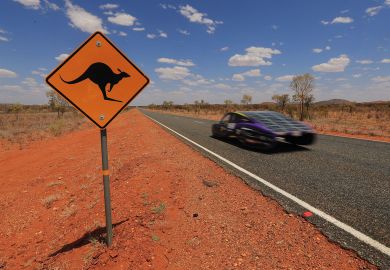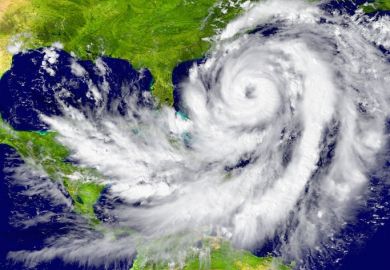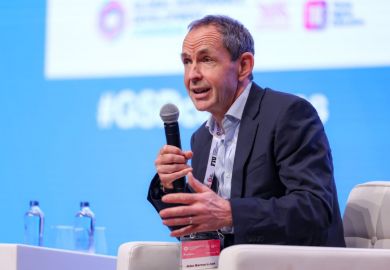Pacific Union College had to be evacuated twice during California’s record wildfire season of 2020.
The small liberal arts school prides itself on maintaining much of the forest that surrounds its campus, but as temperatures climb on the US’ west coast, this dry land is now routinely at risk of bursting into flames. At best, the college will face disruption for years to come. At worst, it might one day be destroyed.
“They’ve done some elaborate work to protect themselves,” said Bryan Alexander, author of Universities on Fire: Higher Education in the Climate Crisis, a new book that explores how environmental change will fundamentally reshape the sector over the remainder of the century.
“They’ve cut a clear radius around their campus to make it harder for fire to leap on to their buildings. They cross-train their faculty on emergency response; they’ve got a helicopter so they can fly out and deploy flame retardants.”
Every campus should be planning for how climate change might affect them, said Dr Alexander, a futurist and adjunct professor at Georgetown University, and this should have started “yesterday”.
“If you are a campus on the Indian Ocean, and there are a ton of these, do you try to dig your heels in and preserve what you have got? Or do you leave and relocate to higher ground?
“In the US the worst example is Miami, where there are a dozen campuses literally on the beaches of the Atlantic Ocean. It’s a lovely location, but they are going to have to decide: are they going to build a sea wall to protect themselves or are they going to relocate inland?
“The whole state of Florida is likely to go under with just a 3m sea level rise, so how far do you have to go? If you are thinking about relocating a whole institution, all kinds of factors come into play. There are all kinds of questions you have to ask.”
Universities on Fire is, according to Dr Alexander, a very literal title but also a symbolic one.
“Fire for me is a metaphor for enlightenment and excitement. If you talk to people in Extinction Rebellion, metaphorically they are on fire to do something about this.”
Any futurist worth their salt should give people a sense of “multiple futures”, he said, adding that “you have to give people a plurality of choices so they can feel some agency”.
The book therefore focuses both on the “best-case” scenario, “if we get our hands around it and if we get lucky”, and the worst, “which is terrifying; the scariest chapter I’ve ever written in my adult life”, he said.
POSTSCRIPT:
Print headline: Campuses must fight fire with fire
Register to continue
Why register?
- Registration is free and only takes a moment
- Once registered, you can read 3 articles a month
- Sign up for our newsletter
Subscribe
Or subscribe for unlimited access to:
- Unlimited access to news, views, insights & reviews
- Digital editions
- Digital access to THE’s university and college rankings analysis
Already registered or a current subscriber?








